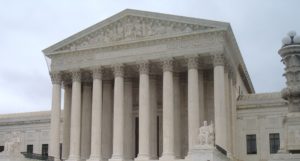
Corporate legal operations folks need to pay attention to this Court Decision
One of the things that has always puzzled me is how some of the smartest people in the world could behave so irresponsibly when it comes to legal matters. I’m not a lawyer, and granted, I’ve worked around lawyers long enough that some of their tendencies if not their practices have probably rubbed off on me, but even I know what is required when it comes to preserving documents and electronically stored information (ESI) in the context of discovery.
This is not a new thing.
Judicial rules governing the preservation of documents in discovery existed long before anyone ever thought about producing electronic documents. The notion that parties to a litigation need to preserve for discovery potentially relevant evidence should not strike any lawyer in the U.S. as unheard of or novel. But that is exactly what appears to have happened in Small v. University Medical Center, No. 2:13-CV-0298, an August 14 court decision from the United States District Court for the District of Nevada. And while this court decision reads like an indictment of counsel who represented University Medical Center (UMC), in fairness the client here is not without fault and that is why legal operations personnel need to pay attention here.
The best example of the worst example?
The Small case revolves around claims against UMC for unpaid wages and overtime. On its surface, it’s a pretty straightforward employment litigation. In fact, it matters not what the claims in the case are; this could involve any dispute. What is so striking is not the plaintiff-employee claims — these kinds of cases crop up all over the country. No, what surprised me is the abject failure of UMC to take even the most rudimentary steps to preserve electronic documents, to implement a litigation hold, and to comply with basic rules and norms of discovery in litigation.
You should not take my word for it. Here’s what the judge said after reciting the litany of complaints, the numerous discovery conferences, motions to compel, and hearings before and after appointing a special master in an effort to reign in the discovery abuses:
CLICK HERE TO READ THE REST OF THIS ARTICLE ON ABOVE THE LAW
